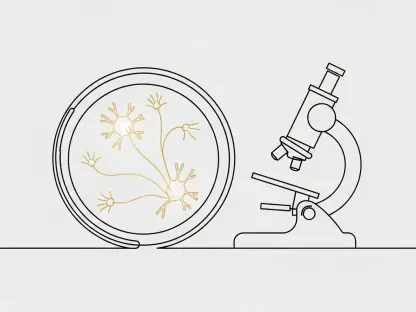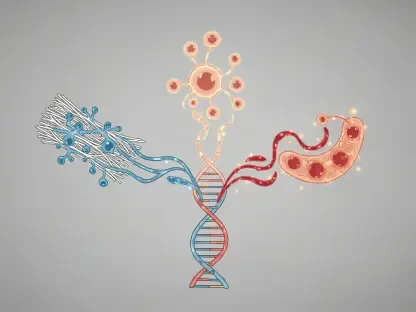Recent advancements in the field of monoclonal antibody (mAb) treatments have shown a promising shift towards more effective cancer therapies. The 3E10 antibody, initially identified in autoimmune mouse studies focused on systemic lupus erythematosus, has emerged as a game-changer. Unlike conventional mAbs that can only target the surface proteins of cancer cells, 3E10 has the unique ability to penetrate cells and reach intracellular targets. This development, spearheaded by researchers Sai Pallavi Pradeep and Raman Bahal at the University of Connecticut, offers hope for transforming the landscape of cancer treatment by providing new ways to address tumors that resist current therapies.
The Unique Properties of 3E10 Antibody
The standout feature of the 3E10 antibody is its capability to target RAD51, a crucial protein involved in DNA repair. This characteristic makes it especially advantageous for treating cancers with defective DNA repair pathways. Traditional mAb therapies, while significantly more targeted and efficient than chemotherapy, face limitations due to their inability to access intracellular targets. The ability of the 3E10 antibody to penetrate cells and disrupt specific intracellular processes sets it apart from existing treatments. Additionally, the research has highlighted various humanized versions of this antibody, some of which have effectively blocked RAD51, while others demonstrated potential in delivering therapeutic molecules, including genetic material, directly into cancer cells.
Implications for Future Cancer Therapies
The ability of the 3E10 antibody to penetrate cancer cells and target RAD51 offers hope for treating cancers that are currently resistant to other therapies. By disrupting intracellular processes critical for cancer cell survival, 3E10 could provide a new approach to treatment. Moreover, its potential to deliver therapeutic molecules directly into cancer cells could open new avenues for combination therapies and personalized medicine. As research continues to advance, the 3E10 antibody might revolutionize the way we approach difficult-to-treat cancers, ultimately improving outcomes for patients.









